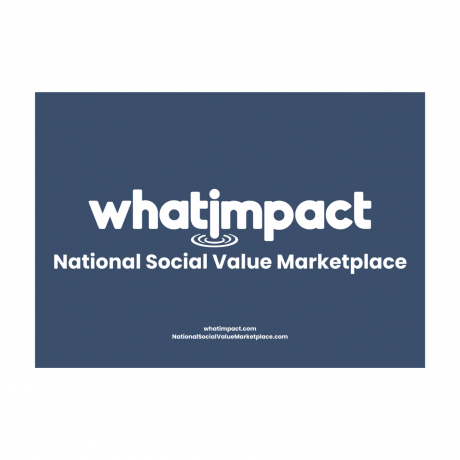Social value requirements in public sector contracts are creating valuable partnership opportunities for charities, social enterprises, community groups, and initiatives (VCSEs). Public sector contractors are actively seeking partnerships with organisations that enhance employment, improve biodiversity and environmental conditions, boost health and wellbeing, and strengthen social cohesion in our communities.
Local authorities—including councils, counties, NHS trusts, Fire & Rescue services, and Police forces—typically require social value activities to take place within their specific operational areas. Central government contracts may allow a broader geographical approach, but there’s usually a strategic rationale behind selecting areas for grassroots impact, such as the supplier’s office locations or targeting the most deprived communities.
Understanding the “Locality” Challenge
Due to these factors, the ‘locality’ of VCSEs has become extremely important. However, several misconceptions about this criterion need addressing:
1) Registration vs. Impact Area
A locally registered VCSE has an official registration with Companies House or the Charity Commission. Non-registered, unincorporated associations define their operational area in their constitution, with trustees assuming liability through their personal addresses. However, this registered address doesn’t guarantee that the VCSE’s work is confined to any particular area. Even when work takes place locally, its reach often extends beyond council boundaries or jurisdictional areas, as VCSEs serve beneficiaries’ needs rather than adhering to rigid postcode restrictions.
2) Flexible Geographic Boundaries
VCSEs rarely plan their operations by restricting beneficiaries to specific council boundaries or strict geographic areas. Their work is more connected to their mission—an environmental charity might clean a river flowing through several counties, or a mental health organisation might help people who either live or work within an area, not just those with local home addresses.
3) Expertise Beyond Borders
Many expert VCSEs have developed effective intervention programs over years or decades to address societal and environmental challenges. These organisations have expanded their reach due to demand, becoming regional or nationwide entities. Their projects, however, can remain hyper-local and targeted, supported by strong partnerships with local schools and referral networks.
Unfortunately, these organisations are sometimes overlooked by local authorities who view them as “non-local” or competing with locally registered organisations. It’s important to recognise that while there are tens of thousands of voluntary-funded VCSEs nationwide, not all councils or counties have all types of VCSEs in their area. Accessing regional or nationwide expertise is often vital.
4) Local Knowledge vs. Proven Impact
Hyper-local organisations undoubtedly understand their operational area and beneficiary needs extremely well. Community houses, food banks, and drop-in centres are examples of local initiatives often run by locally registered VCSEs. However, this represents only part of the picture when evaluating impactful interventions.
True evaluation should focus on evidence of proven outcomes and impact when assessing an organisation’s “relevance.” Many challenges are consistent across different council areas—what matters most are the concepts and projects created to address these challenges. With proven impact, knowledge sharing and spread to new areas is possible.
5) Beyond the Usual Suspects
Local authorities and housing associations have long collaborated with local VCSEs, but not all local or locally relevant VCSEs are on their radar. Often, only a handful of active VCSEs receive attention in local directories and recommendation networks. Equal opportunity and access to a wider range of VCSEs relevant to an area, while actively seeking new, innovative initiatives, is key to achieving the most powerful grassroots impact.
6) Levelling the Playing Field
At whatimpact, we aim to level the playing field so all VCSEs can be evaluated and discovered equally. When government contractors—typically private sector companies—partner with local VCSEs, it’s important to welcome three groups as candidates:
*Those registered in the area
*Those relevant to the area
*New approaches, projects and pilots to embrace social and environmental innovation
Partnerships that align with suppliers’ strengths
We’ve long advocated for social value to be strategic rather than a tick-box exercise with ad-hoc delivery lacking a broader vision. Therefore, we foster three ways of connecting government suppliers with VCSEs:
1) Equal Representation
Presenting all locally registered organisations equally so public sector and housing association suppliers can easily and efficiently find local delivery partners to fulfil their chosen social value criteria. Limited selection of VCSEs and projects can result in ad-hoc, sporadic donations in each of the location they work at. It is essential to give businesses the opportunity to showcase their skills, products, services, and knowledge to the VCSE market, fostering more impactful partnerships.
2) Strategic Nationwide Partnerships
Helping government suppliers find the best regional and nationwide VCSE partners across the country for strategic partnerships that deliver meaningful value wherever contract work takes place. These partnerships often last years and become true “social value supply chain” relationships. These initiatives introduce new programs and intervention methods to the communities suppliers work in.
3) Flexible Partnership Models
Embracing the fact that VCSEs can be “social value suppliers” for government contractors either as invoiced subcontractors or as donation and volunteering-based partners. Social value as a concept and criterion only benefits from fluid and diverse partnership models without unnecessary restrictions.
A New Approach to Connections
whatimpact.com, the National Social Value Marketplace, is now an open-access system for government and housing association suppliers to connect with both locally registered and locally relevant VCSEs in an innovative way. Suppliers can offer partnerships, while VCSEs can promote their projects and resource requests.
With over 300,000 VCSE pins on our map and various matching filters, our system is designed to deliver the best social value outcomes for each public sector body and housing association by ensuring hyper-local relevance alongside the best reach and comprehensive data about VCSEs.
If you are a VCSE, read more here.
If you are a Government Supplier, read more here.
If you are a Public Sector Organisation, read more here.





